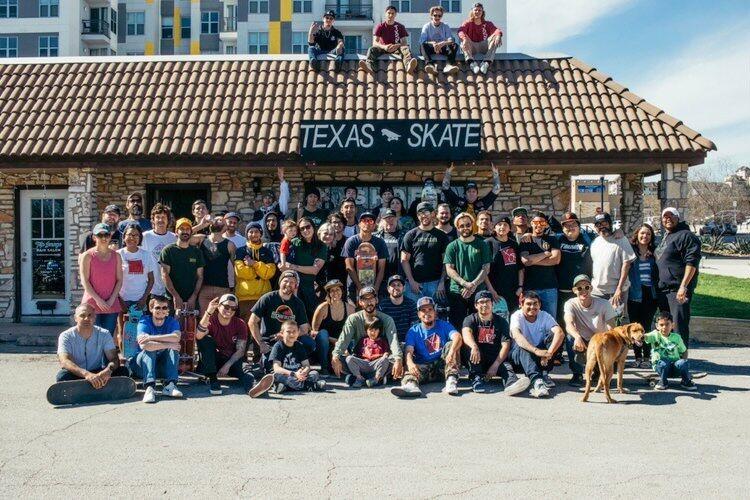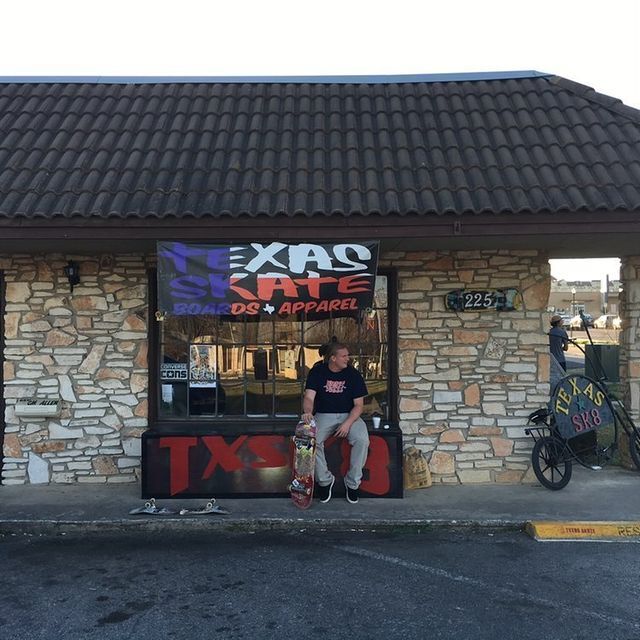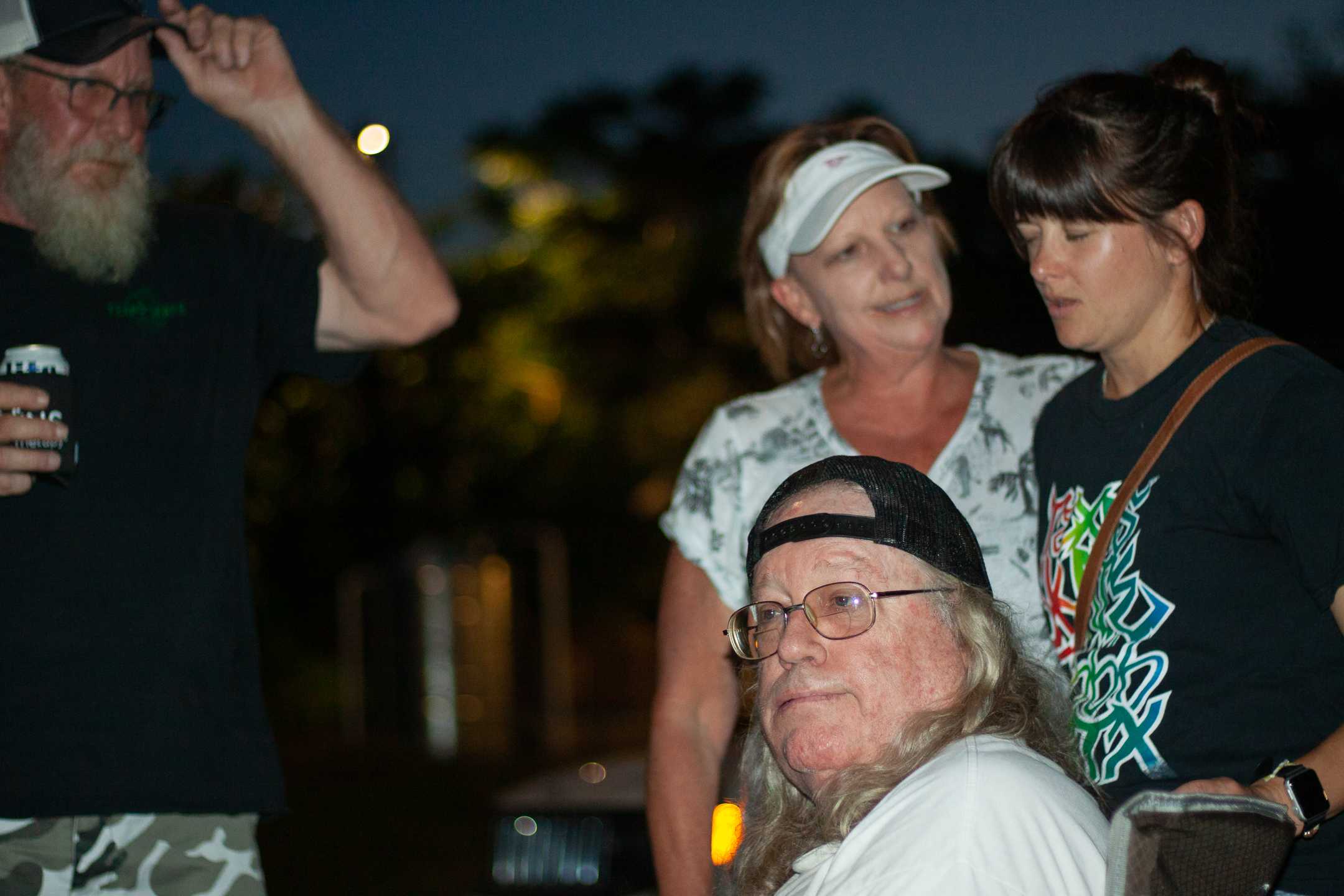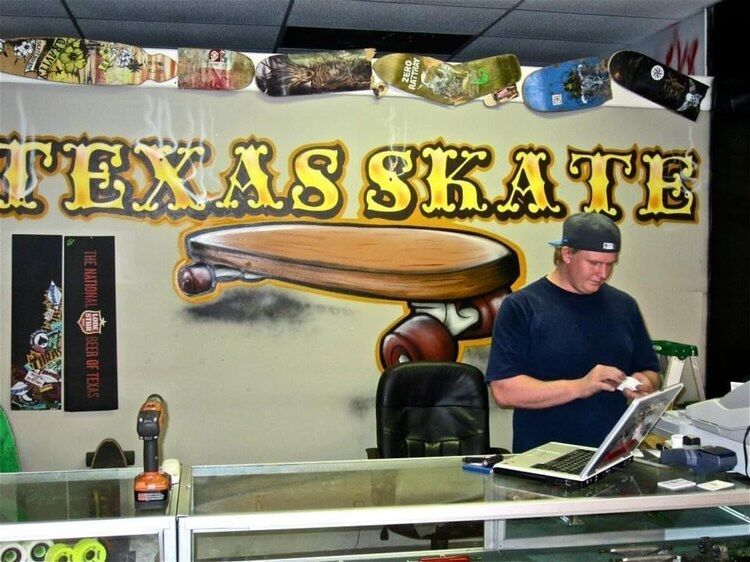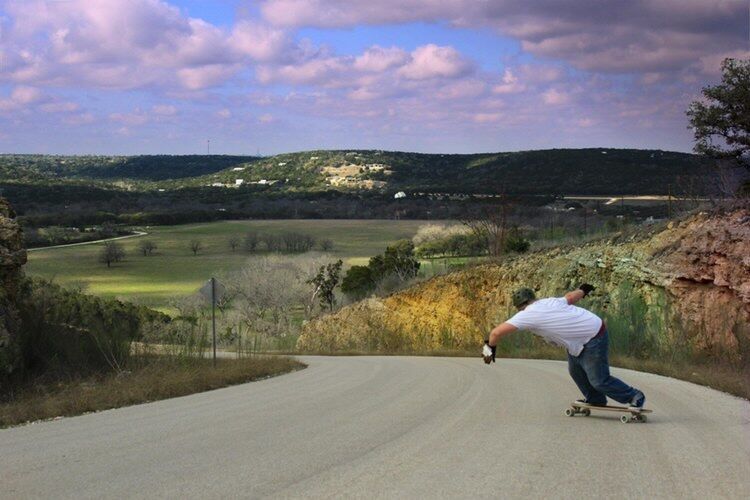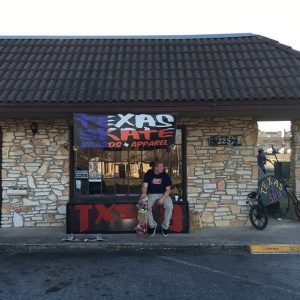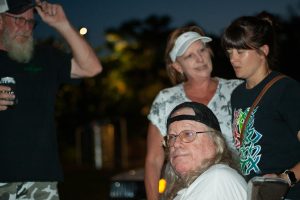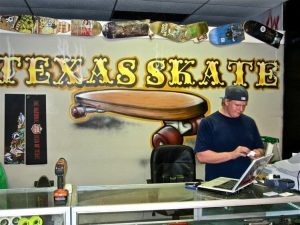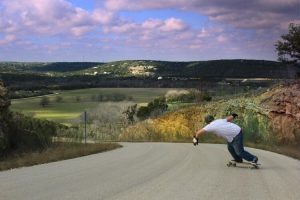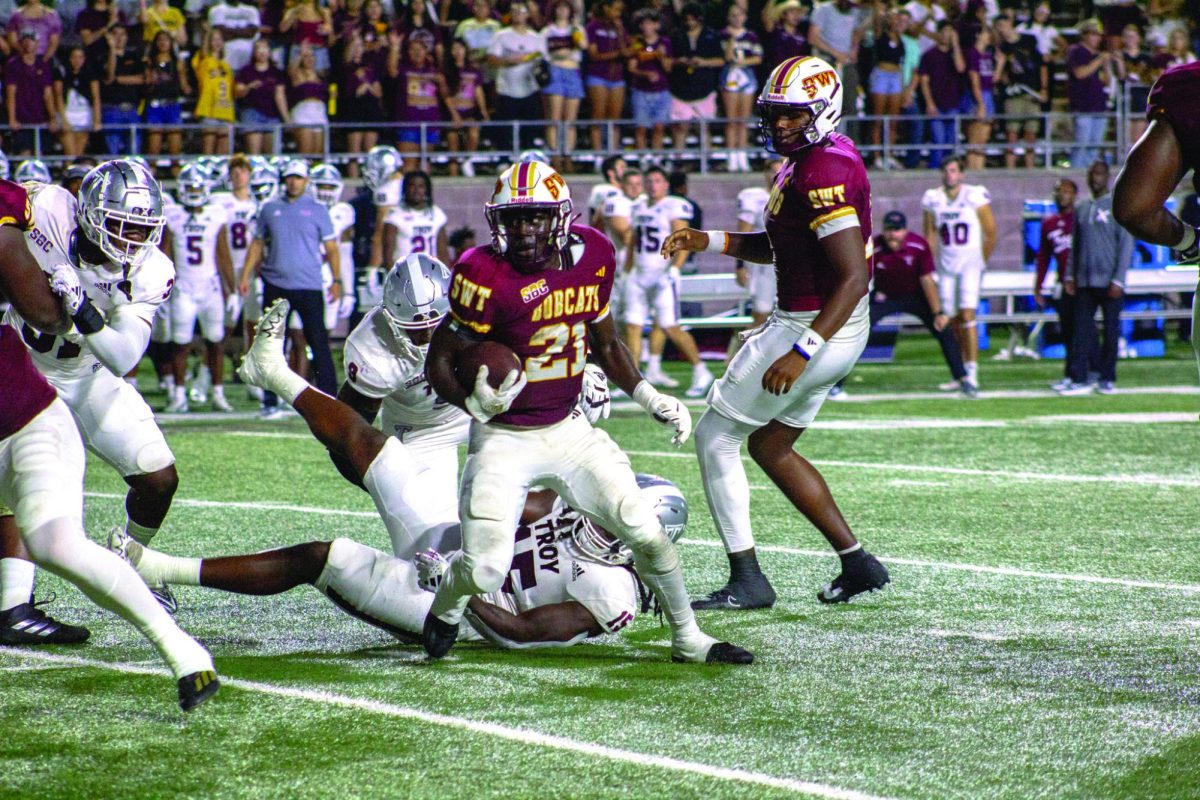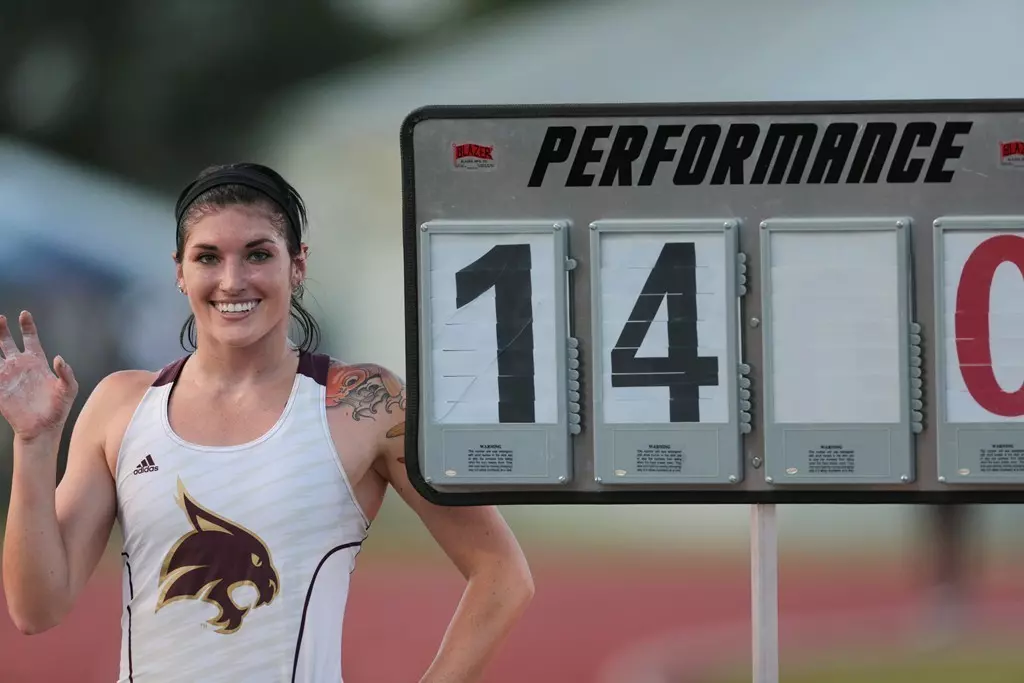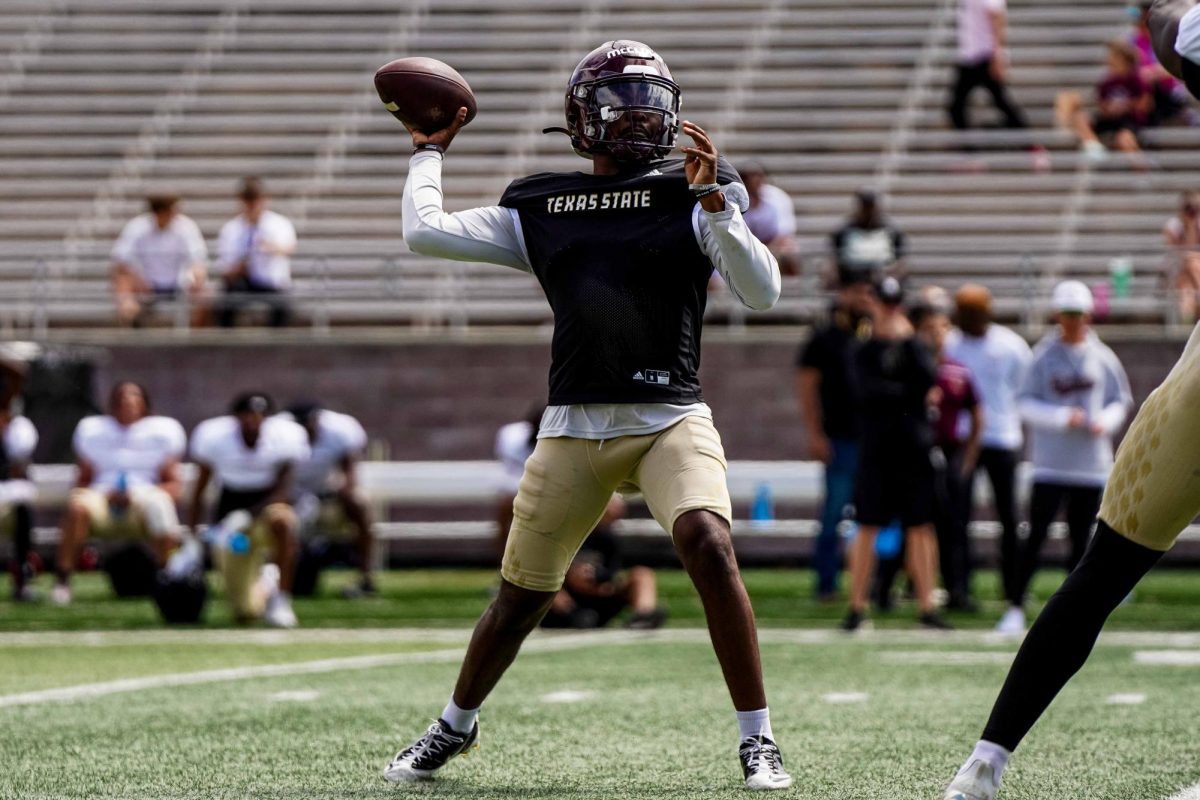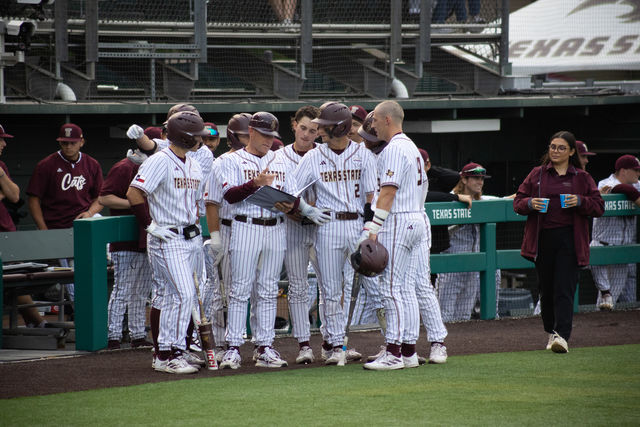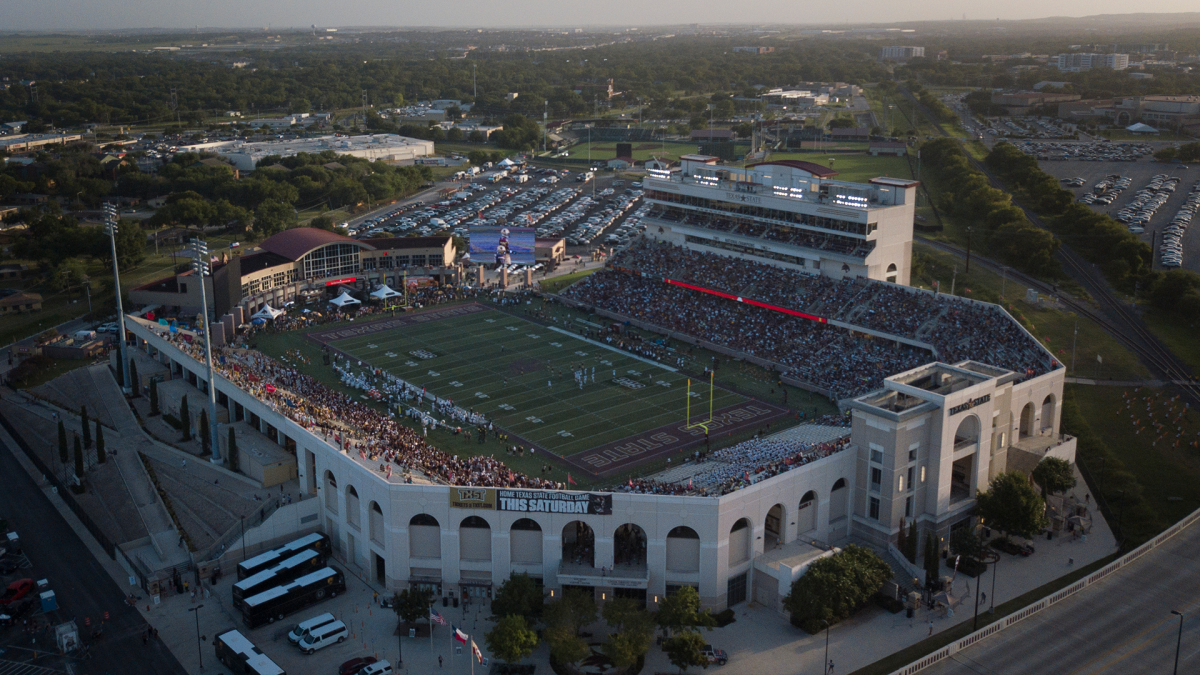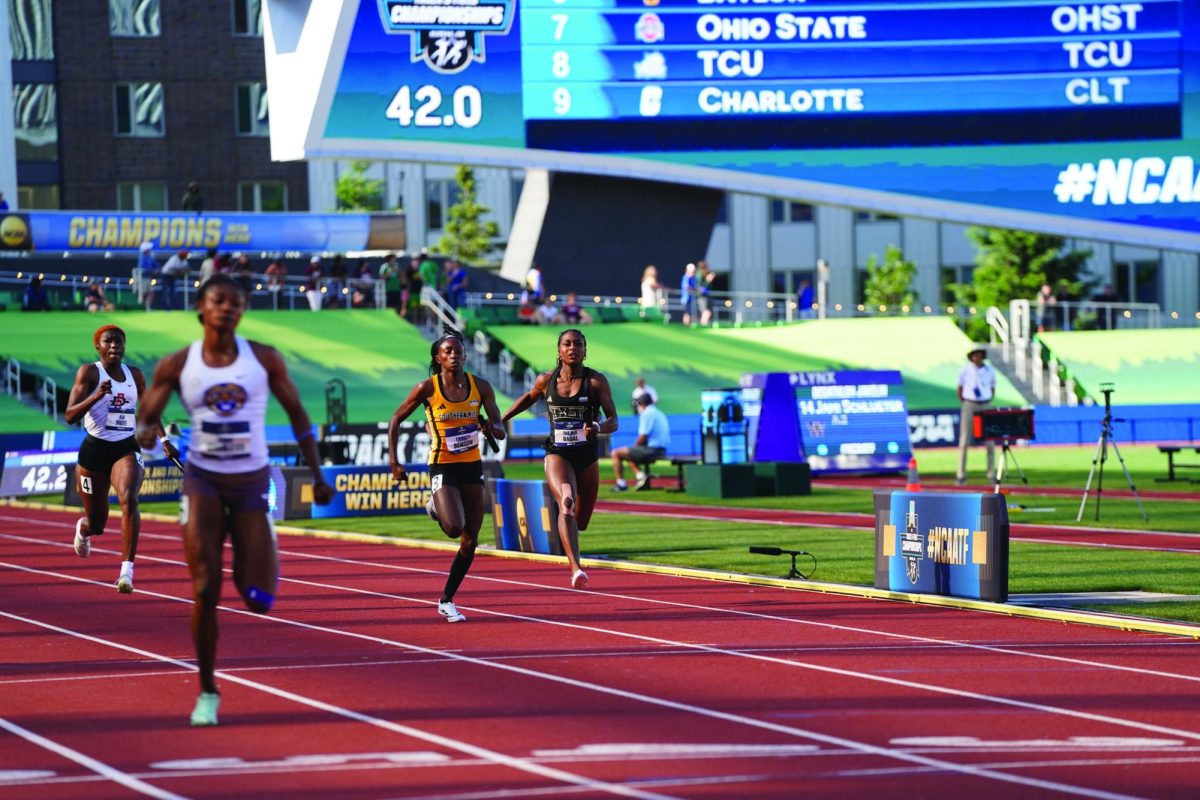On a humid June night, people of all ages and walks of life gathered in a backyard on Arizona Street for the premiere of “FOREVER,” a video created to celebrate the life of local skating legend Cody Hobbs and his iconic skate shop, Texas Skate.
The tone of the premiere was one of somber celebration. A mix of Cody’s friends, family, acquaintances and even those who only knew Cody in passing, spent the night swapping stories, skateboarding, sipping drinks and enjoying one another’s company.
Cody, the “skate dad” of San Marcos, passed away in January 2020; his shop closed shortly after in March. Even a year later, the story of Cody’s life and Texas Skate leave behind continues to have lasting effects on the community.
Humble beginnings
Cody and his friend Geoff Quick cofounded Texas Skate in 2008. The idea behind Texas Skate began as a dream in Alvin Ord’s Sandwich Shop, where Cody and Quick worked while students at Texas State. They realized San Marcos had not had a proper skate shop since the 90s and set out to create a remedy.
The name “Texas Skate” was born at the “Marlton Minis,” which Quick describes as “a terrible little concrete patch with a little bit of slope and a little bit of angle” that he and Cody would skate like a mini ramp.
“[Cody] was wearing this cool Texas State shirt that I had never seen, it had kind of a cartoony looking graphic,” Quick says. “We had already known when we got a little money, we wanted to start a shop, and we were trying to come up with a name. I remember I looked him right in the face, and I said, ‘How cool would that shirt be if [it] said Texas Skate?’ It just clicked after that.”
Being a couple of college-aged skaters, Cody and Quick certainly did not look like typical entrepreneurs.
“I’ll never forget the first day we got the keys [to the shop],” Quick says. “We met at the property management office, you know, we are young, in our early 20s; we skateboarded there, I’m pretty sure. We walk in [wearing] basketball shorts, t-shirts, sweaty, carrying skateboards. We’re like, ‘We’re here to check out 241 N LBJ (the shop’s original location).’ They just look at us like we are crazy. They gave us the keys, and we went over there. We spent five minutes in the shop and skated right back over there and said we will take it. They didn’t believe us.”
One could say Cody had an entrepreneurial spirit in his blood; he comes from a long line of small business owners and always said he would not work a typical nine-to-five job. Though his parents, Dolores and Dennis Hobbs, never envisioned their son would make skating his career, they were surprised to hear the news of their son’s new business venture.
“He called us one day before the shop started and said, ‘Mom, I’m gonna start my own business,’” Dolores Hobbs says. “I said, ‘With what? Your looks?’”
While Dolores and Dennis Hobbs were skeptical, they made the trip to San Marcos and spent two days and two nights helping the young businessmen renovate the shop.
In the early days of Texas Skate, the shop did not have much inventory — just a few skateboard parts and tools in a small glass case. However, it was in these early days that San Marcos local John Butler and his friend Jerald Beach, a longtime member of the Texas Skate crew, wanted to start their own skate shop.
“They didn’t have too much in [the shop], but man, Cody and Geoff won us over with their personalities, their love and care for the community,” Butler says. “After that, I completely dumped the idea of creating our own skate shop.”
Over time, the shop expanded its inventory with more parts and tools and started selling skateboards, longboards and cruisers.
Eventually, they even formed a competition team, also called Texas Skate. Beach says as Texas Skate’s brand grew, the skate scene in the city grew alongside it.
“There wasn’t much of a skate scene in San Marcos, besides some longboarders,” Beach says. “Once the shop came around and all of us got together and we started doing stuff, it kinda blew up.”
Butler says even though the shop was bare-bones in its early days, it didn’t matter. What mattered to them was how the shop and those who work there served their community.
“If you’re truly into true skaters and the mindsets of skaters and passion for skating, it’s not about how much they have in the shop,” Butler says. “It’s about what they can provide to you and the community. That’s what you could tell right off the bat when you were talking to them.”
Through the local skate scene, Brete Anderson met the boys and soon became their mentor. Anderson has been skating nearly since skateboards were invented back in 1959. In all his years of skating, he says he has never seen a skate shop or a community built like Texas Skate. He praises the shop because they cared more about serving those who shopped there than simply making a profit.
“At some point this summer 55 years ago, I learned to ride a skateboard,” Anderson says. “[Cody] was the best shop owner, ever. Somebody might come in looking to buy a $400 longboard, and he would end up selling them an $80 cruiser because that’s what they needed.”
Cody and Quick wanted to make skating accessible to all, a concept they learned from Anderson. The shop had a $5 board box, consisting of used boards for those who could not afford a new board, usually, kids. But, instead of making the boards free, they labeled the box at a low price, wanting to teach kids that nothing is free.
Sometimes, if a customer was just a little short on being able to afford what they wanted, Cody would let them work in the shop (sweeping floors, organizing shelves, etcetera) until they paid off the difference.
Walking through the doors of Texas Skate, it was not uncommon to see people just hanging out in the shop. Skaters, including children affectionately referred to as the “shop rats,” would come in just to talk to Quick and Cody and take an air-conditioning break from a long day of skating. The shop owners did not mind if someone did not buy anything; they simply wanted to provide a space for local skaters.
One of the “shop rats,” Nick Byrne, who first went to the shop while in elementary school, says this welcoming environment is what made Texas Skate the ideal skate shop.
“That was the whole point of the skate shop was to make you feel welcomed,” Byrne says. “You could just come and hang out — basically, how a local business should be.”
Anderson believes skating is a positive outlet for young people — it teaches them how to work toward something and provides a community to latch on to. He says Cody had a huge impact on keeping kids involved in the sport.
“I think when you skateboard, there’s lots of little hiccups you can fall hit and quit — driver’s license, first girlfriend, start partying a little bit,” Anderson says. “But most of our kids make it through those little hiccups and still skate. I think a lot of that has to do with Cody.”
San Marcos’ “skate dad”
Cody was a man of many interests. He loved the outdoors, working with his hands, music (he was a talented drummer), he loved to learn new things. But, next to his wife, Sierra Hobbs, skating was his passion. He was not the best skater in the world, or even in San Marcos, and he knew that. But he loved to do it, anyway. He would skate a pool or bomb a hill on his longboard any chance he got.
Cody’s influence over the skate community goes beyond owning a skate shop and selling gear. He made it his mission to ensure that skating was accessible to everyone as well as to care for the well-being of those he encountered. He would do whatever he could to help a person, even serving as a compassionate ear in a person’s time of need.
“Back in 2009 my father passed away,” Butler says. “The first place I went, instead of going home, I went to the skate shop, and the person that was there was Cody. I cried and did all that [expletive]. He didn’t even have to say anything, he was just there. He showed me and let me know that he’s there for me. That was the heaviest moment of my life. He made an impact without even saying too much.”
Byrne, who Anderson calls “the best skater to ever come out of San Marcos,” also got help from Cody in a time of need. Byrne became a member of Texas Skate’s competition team and was sponsored by the shop his freshman year of high school.
While in high school, Byrne encountered some struggles in his life and ended up dropping out of school. However, Cody encouraged him to go back and complete his education.
“You want to wrap Cody up in a nutshell?” Dennis Hobbs says. “Take little Nick [Byrne], going back and getting his GED and graduating. Cody took that serious. Nick needed some guidance, Cody realized it.”
With Cody’s encouragement and guidance, Byrne worked for several days straight to finish his coursework so he could graduate on time and walk the stage. At Byrne’s graduation ceremony, Cody and other members of the Texas Skate crew were there to cheer on their friend as he walked the stage.
“Cody treated anyone the way he wanted himself to be treated, with respect,” Byrne says. “He always had a smile on his face. There was not a single person that would walk into the business, and he was just like, ‘Ah it’s this guy?’ He always was happy to just help people out.”
Cody’s empathy and understanding were apparent not only to those close to him but those who did not know him very well. Issac Nino, who graduated from Texas State in 2018, would go into Texas Skate only a few times a year, but, even in the limited number of times he interacted with Cody, he says he could recognize the kind of person he was.
As a freshman in 2013, Nino says he picked Texas State “on a whim” and had no friends in San Marcos. Cody was the first person he met in town, and he felt welcome right away. Nino says Cody made an effort to get to know him, something that has stuck with him along the way.
“Each time I would pop in the shop Cody was there and I would chat him up,” Nino says. “He would talk to me about just everyday stuff and life and the heaviness that brings. Looking back, I wish I had expanded on some of those conversations.”
“FOREVER”
“FOREVER” premiered on June 12, in Byrne’s backyard. The showing was open to the public. Beginning at 7 p.m., attendees gathered and set up folding chairs or sat on the grass around a large projector screen. At 9 p.m., the video began.
Before Cody passed away and Texas Skate closed, Butler and other members of Texas Skate started making a skate video, just like they had done many times before. It was originally intended to be just another 15–20-minute video, promoting the brand and the skaters by showing clips of them performing tricks.
But, after Cody’s death, the video took on a much greater meaning. The final product, “FOREVER,” is an hour-long video commemorating Cody, Texas Skate, fellow skaters in the community and the 12 years they spent making memories together.
The title, “FOREVER,” comes from the hashtag the Texas Skate community created after the passing of their leader and the closing of the shop, #txsk8forever.
“We are just trying to keep the shop alive,” Beach says. “Even though the shop is gone, we’re all a family. We’ve been together through the skate shop forever and skated forever. We are a family, it’s forever. We don’t ever want to forget these days and everything that happened.”
Butler spent the better part of a year filming and editing the video with the help of a few friends. Much like they have done over the years, they would skate at spots in San Antonio, Austin and San Marcos and spend the day filming and hanging out. The video is split into sections featuring different members of the Texas Skate team, including Beach and Byrne.
Butler says the video is meant to serve as “one last hurrah” for everything that has happened over the past 12 years, but, while the video was made in Cody’s honor, Dolores Hobbs says the significance of the video goes far beyond her son.
“It’s not just a tribute to Cody,” Dolores Hobbs says. “It’s heart whelming, this is for all these guys too. They work hard, they take skating super serious; they are super talented, and I love every one of them. I talk to them all the time, and they treat me like their mother. They contact me on Mother’s Day, we talk when we come to San Marcos. It’s for everybody, not just Cody. Because Cody wouldn’t want it that way.”
Being able to see all the people that he, and especially Cody, impacted through the shop means a lot to Quick. Seeing the “shop rats” grow up and have lives and kids of their own is something that he holds dear. While he recognizes one chapter of their lives has closed, he also realizes that another is beginning, although without their dear friend.
“It means everything to know we were able to impact people in a positive manner like this,” Quick says. “Some of these kids had nothing, maybe don’t come from the greatest home backgrounds, and they were able to find this family. I can’t stress that word anymore — it’s family. These people are my brothers, and they all feel the same way. That’s really made San Marcos different than anywhere else. We’re family.”
“FOREVER” is available for purchase on DVD. For more information contact John Butler.











